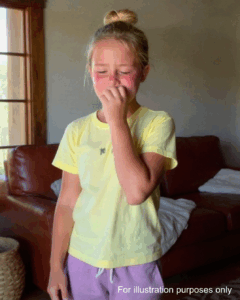When I was a kid, my grandfather used to say that animals understood things better than people. “A dog never lies,” he’d mutter, usually while nursing a coffee on the porch and tossing stale bread to the chickens. “Neither does a goat. You ever seen a goat pretend to be something it’s not?” I’d shake my head, wide-eyed, and he’d grin like we were in on the same secret.
His name was Charles Whitaker, but everyone in our town just called him “Gramps.” His farm sat on the edge of Hamilton County, a patchy 12-acre stretch of stubborn weeds, rickety fences, and a barn that leaned slightly like it had grown tired of standing. But it was home to every lost or broken creature within fifty miles. A three-legged pig named Wendell, a blind sheep called Missy, two geese who hated everyone except Gramps—he had room for them all.
He and Nana ran the place for nearly forty years, calling it “Whitaker’s Rescue.” No frills, no donations page, just a handwritten sign at the gate and a reputation for compassion. When Nana passed, it was like someone turned the volume down on the world. Gramps got quiet. Real quiet. He still did the chores, but they were robotic. He’d pet the cat absently, never noticing the way she pressed against his hand for more. It was like his heart had gone missing.
A year later, we had to move him into a retirement home in town. Meadow Pines wasn’t a bad place—clean, quiet, with staff who didn’t treat the residents like burdens—but when we told him, he just nodded once and said, “Okay.” No protest. No fight. That silence shook me more than any argument would have.
I’m Carter, by the way. My younger brother’s name is Miles. I’m 29, he’s 24, and neither of us ever intended to inherit a run-down farm or a pack of emotionally complicated livestock. I teach at a community college, and Miles is a freelance videographer who mostly films weddings and real estate promos. But we both spent our childhood summers at that farm, naming chickens and getting kicked by donkeys. We knew what it meant to Gramps, even if he never said it outright.
We went back after the move to clean up the place. We figured we’d prep it for sale—get it listed, maybe find a buyer who wouldn’t bulldoze it into condos. But in the barn, buried under a mildew-speckled tarp and tucked inside an old cookie tin, we found the notebook.
It was old, worn thin along the edges, pages stuffed with wrinkled receipts and torn-out newspaper clippings. Inside were dozens of plans: how to expand the stalls, diagrams for a new roof, cost breakdowns, contact lists, even a list of names for animals he hadn’t rescued yet. “Spud – for a cow. Scraps – definitely a mutt. Lulu – maybe a goose or a donkey?” Page after page of hope, written in his sharp, looping handwriting. It hit me like a gut punch. He never stopped dreaming. He just stopped believing anyone would care once he was gone.
But we cared.
The next few months were chaos. Miles dug into the grant research like a man possessed, while I handled the bureaucratic mountain of paperwork. We pitched the rescue as a therapy program, designed to connect rescued animals with people in assisted living facilities and schools. We named it “Charlie’s Second Chances.” It felt right.
The permit process was hell. The roof had to be replaced, the fencing redone, the barn rewired. We held a fundraiser, which Miles filmed and edited into a short documentary that went semi-viral in our town. People donated. Some offered time. A woman named Denise from upstate drove down every weekend with fresh hay and carrots, saying she’d volunteered there once as a teen and “never forgot that goat with the one ear.” I guess Gramps wasn’t the only one the farm had touched.
Three weeks ago, the final paperwork came through. We had the green light. And that’s when we pulled off the surprise.
Miles borrowed a van. We loaded it with two rescue dogs—Waffles and Rusty—a therapy-certified Angora bunny named Myrtle, and the star of the show: Pickle, a miniature goat with a lopsided horn and a custom-knit sweater. We called Meadow Pines ahead, coordinated with the staff, and pulled into the lot like we were delivering magic.
When Gramps saw us, he squinted like we were ghosts. Then he saw the goat.
“Pickle?” he asked, like he somehow already knew the name. The goat bleated and trotted over.
He laughed.
He laughed so loud the nurses came running. Then he cried—but only for a second, because he was too busy hugging Rusty and scratching Myrtle behind the ears.
“You two did this?” he asked.
We nodded. He didn’t say anything else. He didn’t have to.
We started bringing the animals by three times a week. It was therapy for more than just the residents. One man with late-stage Parkinson’s hadn’t spoken in months until Waffles plopped his head on his knee. A woman with memory loss started calling Myrtle “My sweet girl,” and asking every day when the “farm kids” would be back.
But we didn’t tell Gramps the whole story—yet.
Last week, we took him for a drive. He thought it was just to get coffee. We made up some nonsense about a new bakery near the outskirts of town. When we pulled up to the farm, he frowned.
“Why’re we here?”
“You’ll see,” I said.
The new sign was already up: Charlie’s Second Chances: Rescue, Rehome, Reconnect.
When we walked him to the barn, he stopped in the doorway. Inside, it was clean—new straw, fresh paint, repaired stalls. The goat pen was rebuilt, and Missy, the blind sheep, had a new companion: a rescued lamb we’d named Clover. She was white and fluffy and had already figured out how to nose the latch open if you didn’t secure it right.
Gramps walked to the center of the barn and just stood there. I thought he might cry again, but he didn’t. He placed a hand on the stall wall and nodded slowly.
“Looks good,” he said. “Better than I ever got it.”
“We’re reopening next month,” Miles told him. “You’re the founder. We’re just the maintenance crew.”
He gave a half-chuckle. “You boys are the heart.”
That night, he told us he’d always wondered if the rescue would die with him. He’d figured maybe someone would bulldoze it or maybe the animals would get sent off in pieces. “But I never dreamed you’d… finish it.”
“You didn’t finish it,” I said. “You started it. We’re just keeping the story going.”
He smiled and watched Pickle try to jump onto a hay bale. “That goat’s gonna be trouble.”
“She already is,” Miles muttered, rubbing his arm where she’d headbutted him earlier.
Gramps is back at Meadow Pines now, but he comes out every weekend. He helps with training the new volunteers and still insists on inspecting every repaired fence post like it’s his name being stapled to the wood. And maybe it is, in a way.
So yeah—Charlie’s Second Chances is real now. It’s loud and messy and weird and hopeful.
Just like it should be.
If this story made you smile, share it. Maybe someone out there’s holding onto a dream in an old notebook, thinking no one would care.
They might be wrong.
Would you finish something that someone else only dreamed of?




